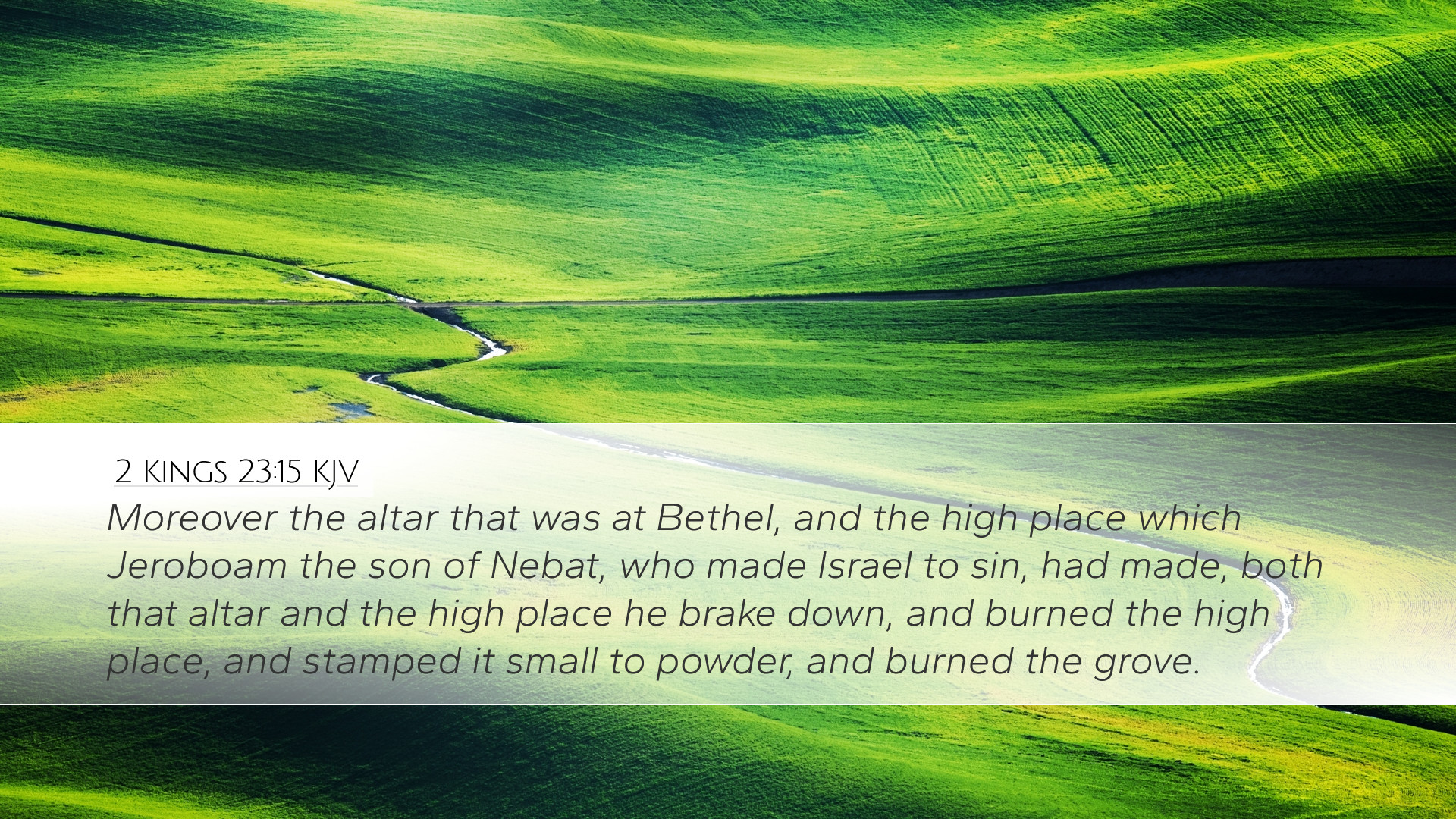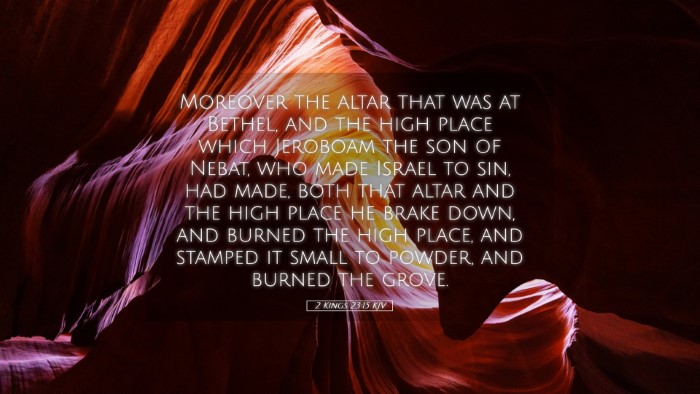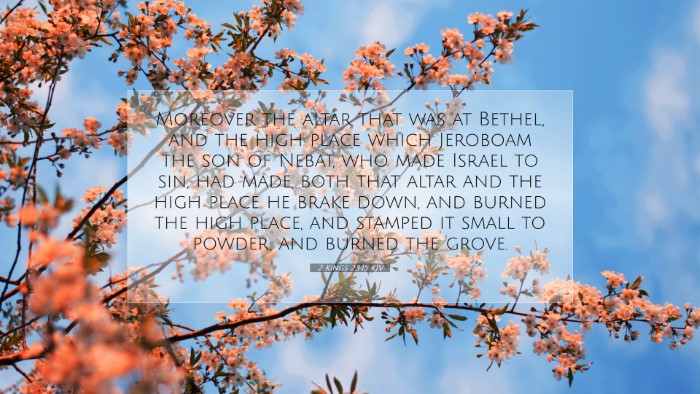Commentary on 2 Kings 23:15
Verse: 2 Kings 23:15 - "Moreover the altar that was at Bethel, and the high place which Jeroboam the son of Nebat, who made Israel to sin, had made, even that altar, and the high place he brake down, and burned the high place, and stamped it small to powder, and burnt the grove."
Introduction
The context of this verse is during the reign of King Josiah, one of Judah's most righteous kings. Under his leadership, significant religious reforms were initiated, aimed at restoring true worship and eliminating idolatry from the land. This verse specifically addresses the actions taken against the altar at Bethel, a site of great significance in Israel's history but also a focal point of apostasy.
Historical Context
Matthew Henry: Josiah's reforms were radical and widespread; he sought to rid the kingdom of every vestige of idol worship. The altar at Bethel was originally erected by Jeroboam I as part of his strategy to prevent the people of Israel from going to Jerusalem, fearing that such a pilgrimage would undermine his authority and lead to disunity.
Albert Barnes: Jeroboam's action had long-term ramifications, leading Israel into sin. Josiah's destruction of this altar represents not only a physical act of demolition but a theological restoration, re-establishing the importance of true worship in Jerusalem.
Theological Significance
Adam Clarke: The phrase “who made Israel to sin” indicates Jeroboam's responsibility for the institutionalized idolatry that plagued Israel. By demolishing the altar, Josiah sought to reverse the spiritual decline initiated by Jeroboam.
This physical act of destroying the altar is symbolic of a much deeper spiritual truth: the need to remove the sources of sin and idolatry from one’s life. For pastors and theologians, this underscores the importance of confronting idolatry in their congregations and communities.
Josiah’s Actions
Matthew Henry: Josiah “brake down” the altar, which emphasizes the dismantling of false worship practices. His actions indicate a commitment to restoring proper worship and honoring the covenant with Yahweh.
- Symbolism in Destruction: The act of “stamping it small to powder” signifies total annihilation of idolatry, emphasizing the need for cleanness and purity in worship.
- Burning the Grove: Refers to eliminating associated pagan practices; this comprehensive approach is essential for true reform.
Lessons for Today
Albert Barnes: The church today must consider what altars have been erected in contemporary worship. Are there practices or beliefs that draw God's people away from true worship and into idolatry?
- Self-Examination: Each believer is called to examine their own life for altars—anything that takes the place of God or corrupts their worship.
- Community Responsibility: Just as Josiah led a national reform, church leaders are tasked with guiding their congregations toward purity of worship.
Conclusion
In summary, 2 Kings 23:15 is a powerful example of the need for reform and the eradication of idolatry. King Josiah's passionate efforts to remove the false worship of the land serve as a reminder of God’s desire for genuine worship free from distractions and sinful influences. For pastors, students, and theologians, the study of this verse challenges us to consider what has infiltrated our own worship practices and how we can lead ourselves and others back to the heart of true devotion to God.


